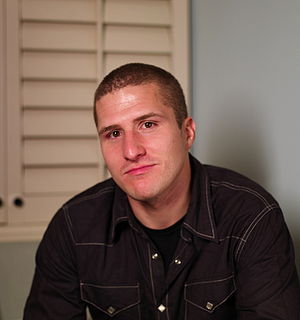A Quote by Brian Tracy
The more feedback you give to people, the better it is, as long as the feedback is objective and not critical.
Related Quotes
I'm much more concerned about what artists think. But as you get older you tend to get much more isolated; you're not out in the bar, having long drunken arguments on the benefits of your work vs. someone else's. It's hard to know how people are looking at it, and you don't get much feedback. The written critical stuff seems to be the feedback, but that's hard to interpret.
When all actions are used for feedback, the consequence of making mistakes will be a corrective and appropriate response, because everything everybody does matters. ... The more selective you are in the feedback you accept, the more insane your reasoning will become as you will necessarily reject corrective feedback that would have led to better reasoning.
I posted chapters online and let people give feedback, and I was surprised at how much of that feedback I actually used for the book.I posted chapters online and let people give feedback, and I was surprised at how much of that feedback I actually used for the book. It was a different process for me, but I liked it.
Productive givers focus on acting in the long-term best interests of others, even if it's not pleasant. They have the courage to give the critical feedback we prefer not to hear, but truly need to hear. They offer tough love, knowing that we might like them less, but we'll come to trust and respect them more.
Step one is to take ownership of figuring strengths ans weaknesses out. It starts with writing them down but, to take ownership, you have got to seek feedback of those who directly observe you - this is scary and uncomfortable for many people. It's no fun to hear negative feedback and most people don't want to stick their necks out to give it to you. So, you have to ask.



































